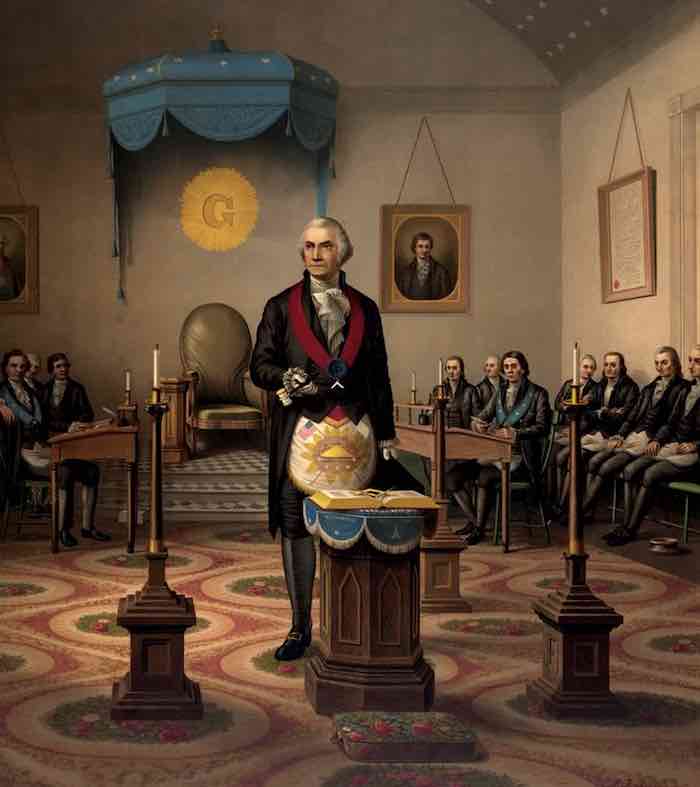Not far from my house is a Masonic Lodge. I drive past it on an almost daily basis. Nevertheless, I have never given the place much thought, other than to absently note its existence from time to time.
I know that many men of the Enlightenment era were freemasons. Wolfgang Amadeus Mozart was a freemason. So were George Washington, Paul Revere, and Benjamin Franklin.
Freemasonry is not something that I’ve ever considered becoming involved with. This is not because I outright dislike it, but rather because I’m just not a joiner.
Chalk it up to my background as an only child. Only children are capable of playing well with others. But we don’t particularly like to. And we especially don’t like to follow other people’s rules.
It will therefore not surprise the reader to learn that although I was raised Roman Catholic, I am a lapsed Catholic.
This isn’t because I’m opposed to the Catholic Church as a matter of principle. On the contrary, I consider the Roman Catholic Church to be a beacon of light in a messed-up world.
Nor did I have any traumatic experiences with priests as a child. My Catholic upbringing—which included Catholic schools and a stint as an altar boy—was pleasant and without incident. I have happy memories of those days, in fact.
Nor am I an atheist. I’m gullible at times, but not that gullible. I don’t like to articulate my religious beliefs in public. But suffice it to say that I believe in a Higher Power.
My lapse from the Catholic Church is related to my dislike of rules set by others. As a student I was taught that the Pope speaks ex cathedra. I simply can’t accept that any one mortal person speaks for the Almighty.
But back to Freemasonry. Pope Francis has recently reaffirmed the Catholic Church’s opposition to Freemasonry. This disapproval dates back to the aforementioned Enlightenment era.
There are doctrinal reasons for the Vatican’s objections to Freemasonry. But the bulk of the Church’s historic animus derives from competition for worldly power. Freemasonry is anti-clerical by inference and inclination. Freemasons also cheered the decline of Church power in Europe that accompanied the national unifications of the 1800s.
All of that is—or should be—so much water under the bridge. But not for Pope Francis.
On the other hand, Pope Francis has expressed suspicion of the traditional Latin Mass, implying that the use of Latin is “a reaction against the modern,” and even “backward”. Imagine saying the same thing about Jews speaking Hebrew, or Muslims reading the Quran in Arabic.
Since he became Pope in 2013, Francis has been almost a gadfly at times. He has developed a reputation for making half-baked pronouncements about environmentalism, economics, and geopolitics.
On matters that actually relate to Catholicism, he is a traditionalist when traditionalism suits him, and a modernist when that mood strikes him. In The World According to Pope Francis, Roman Catholics may not belong to a fraternal organization once patronized by George Washington, no less. But they also do not have license to celebrate the mass in the language that the Catholic Church used for centuries.
I’ve never been drawn to Freemasonry, but the current Pope might make me take a look at it, just to be contrary.
As I said: I don’t like to be told what to do.
-ET

